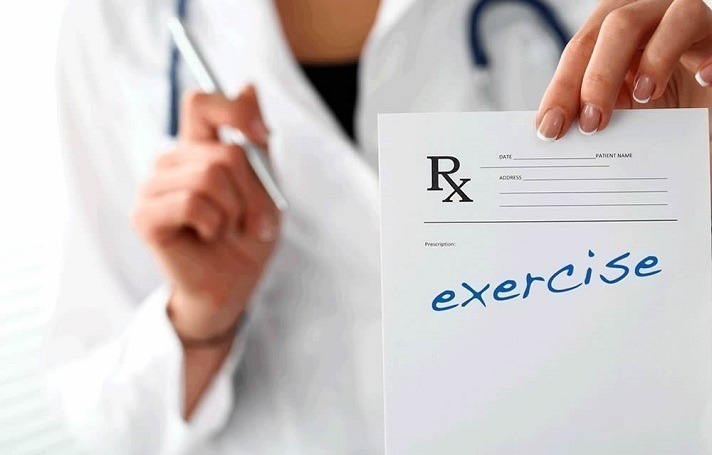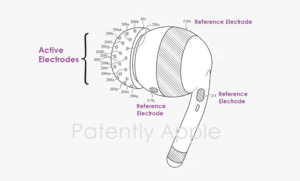Time for a universal “exercise prescription” for kids and adults to boost cognition and mental health?
 Welcome to a new edition of SharpBrains e‑newsletter, featuring this time a range of brain research findings, tools and controversies plus some brain teasers to challenge your (and our) working memory.
Welcome to a new edition of SharpBrains e‑newsletter, featuring this time a range of brain research findings, tools and controversies plus some brain teasers to challenge your (and our) working memory.
“Higher intensity physical activity was associated with greater improvements” and “Effectiveness of physical activity interventions diminished with longer duration interventions.”
The sweet spot was four or five half-hour effortful sessions per week. Are you hitting it?
Not surprising but important findings. Next to research: the type, intensity, and duration that may help the most.
Crucially, “… reading for pleasure in early childhood was linked with better scores on comprehensive cognition assessments and better educational attainment in young adolescence. It was also associated with fewer mental health problems and less time spent on electronic devices … can be beneficial regardless of socioeconomic status. It may also be helpful regardless of the children’s initial intelligence level.” — Long Live Books and Reading (and, yes, Exercise)!
“Early intervention is critical in preventing a patient’s mild to moderate symptoms from worsening” … (but) online therapy may not suit everyone and that it was still up to healthcare professionals to identify “who may and may not benefit”
 #5. Just-published Apple patent signals aim to measure brain activity using AirPods sensor system
#5. Just-published Apple patent signals aim to measure brain activity using AirPods sensor system
Still early days, but relevant signal to note and track
#6. Neurotech and brain data in context: Are “neurorights” the way to mental privacy?
Important point: “The potential to collect brain data more directly, with higher resolution, and in greater amounts has heightened worries about mental and brain privacy …(but) We argue that by emphasizing what is distinct about brain privacy issues, rather than what they share with other data privacy concerns, risks weakening broader efforts to enact more robust privacy law and policy.”
 #7. Hopes and Questions raised by Alzheimer’s drug Leqembi (lecanemab)
#7. Hopes and Questions raised by Alzheimer’s drug Leqembi (lecanemab)
“Will Leqembi’s primary benefit — a slight slowing of decline in cognition and functioning — make a significant difference to patients and family members or will it be difficult to discern? … How many older adults in their 70s and 80s will be able and willing to travel to medical centers for infusions twice a month and have regular MRI scans and physician visits to monitor for potential side effects such as brain bleeds or swelling? Even with Medicare coverage, how many people will be able to afford the suite of medical services required?”
#8. Its massive price tag: $109,000 per patient, per year
“To qualify for Leqembi, patients must undergo a PET scan that looks for amyloid plaques, the protein clumps that clog the brains of many Alzheimer’s patients. About 1 in 5 patients who took Leqembi in the major clinical test of the drug developed brain hemorrhaging or swelling, a risk that requires those taking the drug to undergo frequent medical checkups and brain scans called MRIs … Outstanding doubts about Leqembi and related drugs have given urgency to efforts to monitor patient experiences.”
 #9. Finally, let’s pivot into something more fun. Here are a few brain teasers aimed at challenging your working memory and helping get that brain and mind in great shape for the new academic/ lifelong learning year. Please give them a try … they are not as easy as they may sound:
#9. Finally, let’s pivot into something more fun. Here are a few brain teasers aimed at challenging your working memory and helping get that brain and mind in great shape for the new academic/ lifelong learning year. Please give them a try … they are not as easy as they may sound:
Say the days of the week in alphabetical order, then backwards. If too hard, try the 5 work days first.
If you speak a language other than English, do the same in said language.
Say the months of the year in alphabetical order. Too easy? Well, try doing so backwards, in reverse alphabetical order. (You will probably need some pen and paper for this one.)
Find the sum of your date of birth, mm/dd/yyyy. For a tougher brain teaser, do the same with your best friend’s date of birth (without looking it up…)
Look around you and, within a minute, find three green things that may fit in your pockets, and three red objects that are clearly too big to fit.

 #2.
#2. 
